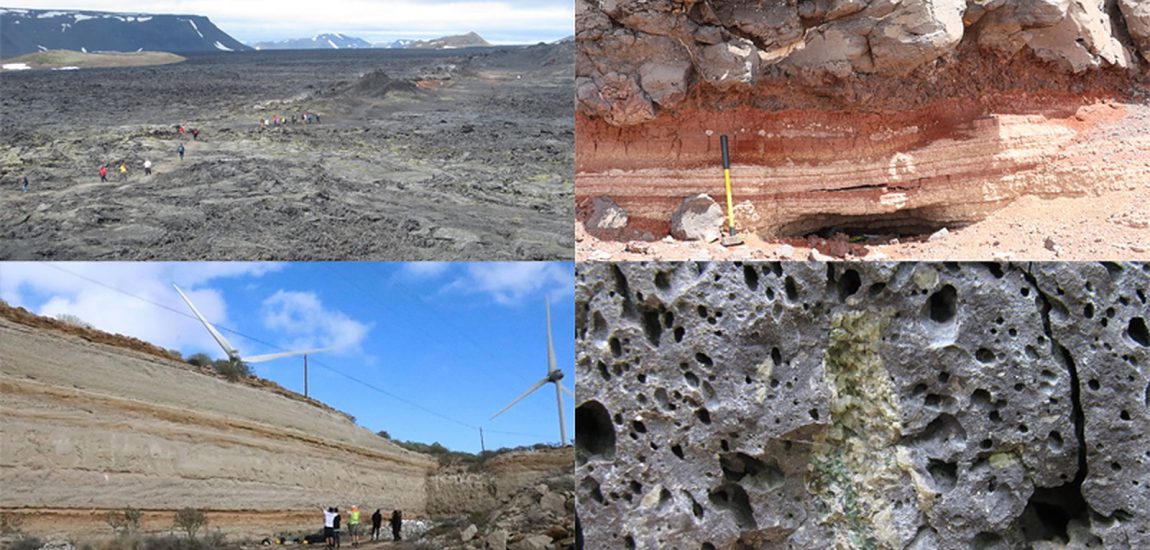
The Value of Field Training in Geochemistry
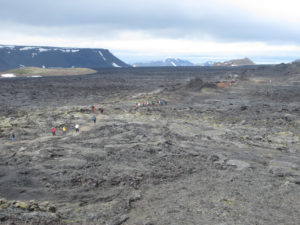
Field work is a key part of training for many geological careers. From locating and describing new deposits to excavating rocks and fossils, to identifying structural relationships between different geological units, fieldwork is essential for geologists to gain a better understanding and appreciation of the geological problems they are studying. But what about for geochemists, whose work is often based mainly in the laboratory? Should they be interested in field work? How can they acquire field skills and why do they need them?
Many PhD and early career scientists in geochemistry come from geological backgrounds, and undergraduate degrees in geology usually include at least a few modules that offer national and international field training. Geology undergraduates therefore gain very early in their career invaluable field-related skills such as geological mapping that are sought after by many employers. In contrast, other geochemists may enter the field via chemistry or biology routes. While the field training provided by these degrees helps them develop broad and important scientific skills, such as hypothesis testing and experimental design, the scientific focus may not always be earth science related.
Having been a geology undergraduate myself, I was introduced to the world of field work right from the go, and much earlier than I discovered geochemistry and its wonders. Throughout my later studies, I have had the opportunity to combine both geochemistry and field work – the two things I’m most passionate about – in my research projects. For my PhD, I am investigating volcanic rocks from Mongolia in order to decipher their origin and evolution in terms of petrology, geochemistry and geochronology. Another aspect of my work aims to understand mantle dynamics and the processes that lead to magmatism in such an unusual (intraplate) tectonic setting, by investigating for example their Sr and Nd isotopic signatures. Geochemistry is thus a key part of my PhD, as was the fieldwork I conducted in Mongolia to acquire my samples. By undertaking the sampling myself, I had the opportunity to critically evaluate the different sites and samples in the field, observe the field relations and identify chronologically different units, and get a much more complete picture of the geological context of the area.
Recently, I had the opportunity to attend a geological field course in Tenerife, kindly sponsored by the EAG through the Student Sponsorship Program (read my report on the EAG blog here). By participating in the course, I hoped to learn and develop several skills––identifying and sampling volcanic deposits, understanding the volcanic history of an area through field observations––important for both my PhD as well as for my future career prospects. These skills should allow me to better understand aspects of my current research that are related more to physical volcanology than to geochemistry or petrology. Furthermore, I will be able to expand my future research interests to include studies of relevant deposits and will feel much more confident working with and sampling relevant material in the field. More importantly for me, as a geochemist, I will be more confident in geochemically analysing and interpreting the materials if I understand their
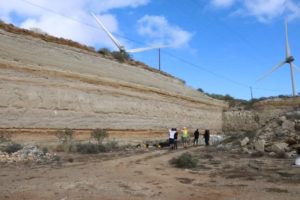
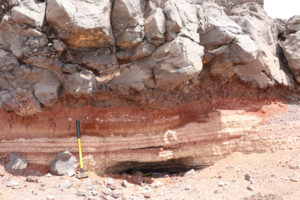
At first glance one might think that field skills are only distantly related to the job of a geochemist, but I believe that such skills are extremely useful and contribute towards a better understanding of the analysed material and the geological problem in several ways. First, being able to recognise and collect the correct sampling material has a big impact on the outcome of geochemical analyses, which saves time and money. Fresh volcanic rocks, for example, will give reliable analyses on which robust models and hypotheses can be made. Altered or weathered rocks, or samples taken from a different chronological unit, will give erroneous results and warrant an avoidable second field season. Second, directly observing different systems and processes in situ allows you to properly understand the sampling conditions and any variables affecting them that you might not have thought of if you hadn’t gone into the field. Third, there is the organisation and preparation of the field trip itself. When conducting field work in remote areas like Mongolia, good planning and preparation is essential. Managing accommodation, transport, site access, local contacts, getting supplies, locating the most important sites to sample, as well as thinking about health and safety issues (e.g. vaccinations), are some of many challenges that need to be overcome in order to obtain the vital geological samples. Last but not least, working in the field is an excellent opportunity to travel around the world, meet new people and cultures, and get the chance to network, make new friends and colleagues, and gain more geological knowledge and new research ideas!
So, if you feel your field skills need brushing up or if you need some specific skills for a new area of research, what can you do? There are various opportunities for PhD students and early career scientists to develop and improve their field skills. You could choose to attend or demonstrate on undergraduate field trips organised by your university. You could also sign up for a field course or trip run by a scientific society or other external institution. Another possibility is to take part in field trips associated with conferences and workshops you attend (e.g. Goldschmidt). Another option might be to offer to help out as a field assistant for a colleague or fellow research student. Most importantly, never hesitate to speak to your supervisor about getting training in any aspect of field work or sampling if you feel you need it!
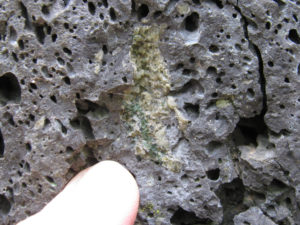
Getting ready for a field trip – What you need!
A few backpack essentials for any scientist working in the field:
- Maps, an all-weather field notebook, pens, pencils and permanent markers, sampling bags or containers, a compass clinometer, hand lens, hammer, and hard hat.
- Hiking/walking boots and suitable clothing (waterproofs, warm clothes, sunhat, sunglasses). A hi-vis jacket is also a good safety item to pack
- Sun cream and insect repellent
- First-aid kit (including any medication prescribed by your doctor).
- Charged mobile phone and digital camera
- Duct tape – for mending everything from ripped tents to torn boots!
This article was also published in the EAG Society News in the April 2020 issue of Elements
About the author
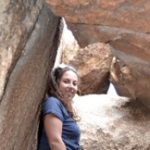
Martha Papadopoulou is a 3rd year PhD student at the University of Leicester, UK. She is investigating the mantle dynamics beneath East Asia, specifically Mongolia, by looking at intraplate Cenozoic basaltic rocks and comparing them with volcanic fields from NE China and Russia. In order to understand the conditions and the processes in the mantle that lead to the formation of melts and subsequently to intraplate volcanism, she combines petrology, geochemistry, geochronology and geochemical modelling along with tomographic images of the upper mantle. Besides her interest in igneous rock geochemistry, she is involved in science communication events and events that promote and showcase STEM subjects to young girls. In her free time Martha is engaged in outdoor activities and photography and also likes painting.
